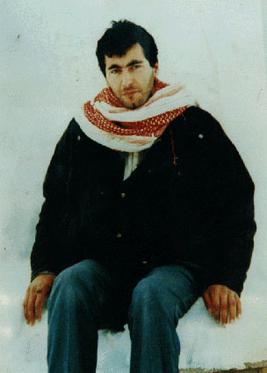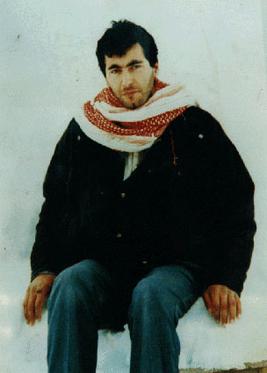
“Like the destruction of Sennacherib’s army”: Massive beeper attack targets Hezbollah
A wave of exploding beepers held by Hezbollah members in Lebanon killed nine people, wounding another 2,750, including some 200 people in critical condition on Tuesday afternoon. There were also reports of similar beeper explosions wounding people in Syria.
Reuters reported that Hezbollah imported about 5,000 beepers several months ago. The Lebanese security source said the pagers were from Taiwan-based Gold Apollo, but the company did not manufacture the devices. It said they were made by BAC, which has a license to use its brand, but it gave no more details.
Hezbollah fighters have been using pagers as a low-tech means of communication in an attempt to evade Israeli location-tracking, two sources familiar with the group’s operations told Reuters this year.
In a televised speech on Feb. 13, Hezbollah’s Secretary General Hassan Nasrallah sternly warned supporters that their phones were more dangerous than Israeli spies, saying they should break, bury, or lock them in an iron box.
A “senior Lebanese security source” told Reuters that the devices had been modified by Israel’s spy service “at the production level.”
“The Mossad injected a board inside of the device that has explosive material that receives a code,” the source said. “It’s very hard to detect it through any means. Even with any device or scanner.”
Another security source told Reuters that up to three grams of explosives were hidden in the new pagers and had gone “undetected” by Hezbollah for months.
3,000 pagers exploded when a coded message was sent to them, simultaneously activating the explosives.
“This would easily be the biggest counterintelligence failure that Hezbollah has had in decades,” said Jonathan Panikoff, the U.S. government’s former deputy national intelligence officer on the Middle East.
The source of the attack is still unknown but Iran-backed Hezbollah has vowed to retaliate against Israel. Israel typically does not comment on military operations outside of its borders. Hezbollah said in a statement on Wednesday that “the resistance will continue today, like any other day, its operations to support Gaza, its people, and its resistance which is a separate path from the harsh punishment that the criminal enemy (Israel) should await in response to Tuesday’s massacre.”
The attack came just a few hours after Israel designated the halting of Hezbollah’s attacks as one of its main war goals and announced that it had foiled an assassination attempt by the Iranian proxy group against a former senior official.
The Biden administration has denied having any part in the incident.
“The US was not involved in it. The US was not aware of this incident in advance, and at this point, we’re gathering information,” State Department spokesperson Matthew Miller said during a press briefing.
“We’re collecting information in the same way that journalists are across the world to gather the facts about what might have happened,” he added.
The UN Special Coordinator for Lebanon, Jeanine Hennis-Plasschaert, responded by calling for calm.
“The developments today mark an extremely concerning escalation in what is an already unacceptably volatile context,” Ms. Hennis-Plasschaert said in a statement. In line with international law, she reminded all “concerned actors that civilians are not a target and must be protected at all times,” stressing that “even one civilian casualty is one too many.”
The UN representative did not address the more than 19,000 rockets Hezbollah fired into Israel since October 7. The Hezbollah attacks have so far killed more than 40 people in Israel, and have caused widespread damage.
The beeper attack is reminiscent of the assassination of Yahya Ayyash in 1996. Ayyash was the chief bombmaker of Hamas and the leader of the West Bank battalion of the Izz ad-Din al-Qassam Brigades. In that capacity, he earned the nickname “the Engineer” and was credited with advancing the technique of suicide bombings against Israel. The Shin Bet assassinated him on January 5, 1996, through a booby-trapped mobile phone.

The spontaneous elimination of 5,000 enemy soldiers without the use of weapons is reminiscent of the sudden destruction of Sennacherib’s army, as related in II Kings 19 after surrounding Jerusalem and King Hezekiah. The Bible describes Hezekiah paying a heavy tribute, suggesting he was overwhelmed by the Assyrian strength at arms.
That night an angel of Hashem went out and struck down one hundred and eighty-five thousand in the Assyrian camp, and the following morning they were all dead corpses.
When Sennacherib rose up early in the morning to storm the city of Jerusalem, he found dead corpses in the place of his mighty army. Crushed with defeat and shame, Sennacherib returned to his capital Nineveh. There he was slain by his own sons while worshiping in the temple of his god Nisroch. This story is written in II Kings 19:35-36
Rabbi Yosef Berger emphasized that this victory over Hezbollah was decidedly divine.
“We have been sending prayers up to heaven and a message came down, albeit via beepers, and wiped out a large chunk of Hezbollah’s army.
“They fire teelim (rockets) that have little effect’” Rabbi Berger said. “We respond with tehillim (Psalms).”
Indeed, since the war began, Rabbi Berger has recited the complete book of Psalms every day as part of the war effort. He explained that King David described the attack in Lebanon.
The voice of Hashem is power; the voice of Hashem is majesty; the voice of Hashem breaks cedars; Hashem shatters the cedars of Lebanon. He makes Lebanon skip like a calf, Sirion, like a young wild ox. The voice of Hashem kindles flames of fire; Psalms 29:4-7
The post “Like the destruction of Sennacherib’s army”: Massive beeper attack targets Hezbollah appeared first on Israel365 News.
Israel in the News